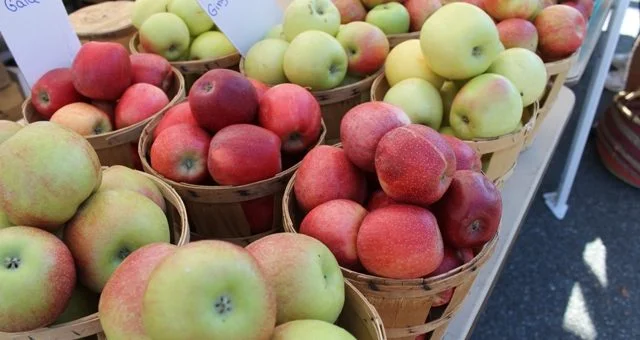As we get older, our bodies experience various changes that can have an effect on our dietary needs. Seniors have certain vitamins and minerals that are necessary for maintaining their wellbeing and health. Having a balanced and nutritious diet can help elderly individuals preserve their ideal weight, keep away from chronic illnesses, and raise their general quality of life. In this blog post, we will be discussing the best diet for senior citizens and the foods they should eat to stay healthy.
Here are some important tips that seniors should follow for a healthy diet:
Choose a variety of nutritious foods: It is important for seniors to consume a diverse selection of foods from all food groups, such as fruits, vegetables, whole grains, lean sources of protein, and healthy fats. Having a diverse diet helps guarantee that the body obtains all the nutrients it requires to work effectively.
Choose whole foods: For a healthier diet, senior citizens should opt for whole foods that have been minimally processed. Whole foods are natural and unrefined and they contain the important nutrients essential for good health. Some examples of whole foods include fruits, vegetables, whole grains, lean sources of protein, and healthy fats.
Consume nutrient-dense foods: It is essential for elderly individuals to prioritize eating nutrient-dense foods that give a lot of nutrition for the calories. Nutrient-dense foods encompass whole grains, fruits, vegetables, lean protein sources, and low-fat dairy products. These types of food are packed with vitamins, minerals, fiber, and other crucial nutrients.
Take in enough protein: Protein is essential for elderly citizens as it assists in the building and sustaining of muscle mass. This is particularly important as we grow older as muscle mass normally reduces over time. Protein can also help seniors feel fuller for a more extended period, thus averting over-eating and weight gain. Good sources of protein for seniors are lean meats, fish, poultry, beans, lentils, tofu, and dairy products. Seniors should attempt to consume around 1.2 grams of protein per kilogram of body weight every day.
Eat plenty of fruits and vegetables: Fruits and vegetables are loaded with vitamins, minerals, and antioxidants which can aid in preventing chronic diseases and enhancing general health. Seniors should aim to consume at least five servings of fruits and vegetables daily. Good options include leafy greens, berries, citrus fruits, and cruciferous vegetables such as broccoli and cauliflower.
Stay hydrated: Seniors should try to drink at least 8-10 glasses of water each day to stay hydrated. Water is necessary for the body to function well and dehydration can lead to a variety of health issues.
Limit intake of salt and sugar: Seniors should limit their salt and sugar intake. Too much salt can bring about high blood pressure while too much sugar can result in weight gain and other health issues.
Pick healthy fats: Seniors should select healthy fats, such as those found in nuts, seeds, avocados, and fatty fish. These fats are essential for sustaining heart health and cognitive function.
Think about taking supplements: Seniors may have to take supplements to ensure they are getting all the needed nutrients. Vitamins D and calcium supplements are required for keeping bone health, while omega-3 supplements are helpful for brain health.
Consume smaller, more frequent meals: Seniors may discover that it is beneficial to consume smaller, more frequent meals throughout the day. This can help prevent over-eating and guarantee they are getting all the required nutrients.
Speak with a healthcare professional: It is important for seniors to seek advice from a healthcare professional to determine their particular dietary needs. Healthcare professionals can assist elderly individuals in creating a tailored meal plan that satisfies their individual needs.
Here is an example of a senior-friendly meal plan that involves a wide range of nutrient-dense foods:
Breakfast:
- Oatmeal with sliced banana and chopped nuts.
- Low-fat yogurt.
- Green tea.
Snack:
- Apple slices with almond butter.
Lunch:
- Turkey and cheese sandwich on whole-grain bread.
- Carrot sticks with hummus.
- Water or iced tea.
Snack:
- Whole-grain crackers with low-fat cheese.
Dinner:
- Grilled salmon.
- Roasted vegetables (such as broccoli, cauliflower, and carrots)
- Brown rice or quinoa.
- Glass of red wine (optional)
Snack:
- Low-fat pudding or Greek yogurt with berries.
In general, a balanced diet for seniors should center around whole, nutrient-dense foods that offer an assortment of essential nutrients. Focus on remaining hydrated, reduce salt and sugar consumption, and pick healthy fats.
Healthy Dining at Fox Hill
At Fox Hill, owners can easily enjoy a healthy diet in any of the restaurant-style venues, including the River Room and Wintergarden Cafe. Breakfast, lunch, dinner and snacks in between are often made with farm-fresh seasonal ingredients adding taste without calories. To sample the menu at Fox Hill for yourself, schedule a tour today!

